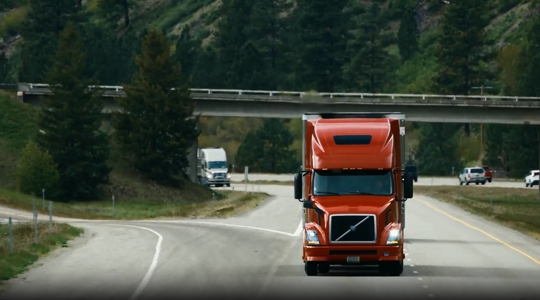About the City of Austin & Trucking in the Austin Area
The capital of Texas and the seat of Travis County, Austin is a college town and a high-tech center, as well as a hub for state and county government. The Texas State Capitol Complex is a source of pride for Austin. Built of Texas pink granite, it is open to the public 7 days a week. Completed in 1888, the Capitol Building is a National Historic Landmark.
Among the major Texas metros of San Antonio, Dallas, and Houston, Austin is strategically and centrally located to utilize Laredo, the major port of entry between the U.S. and Mexico—just four hours from Austin via I-35. The Texas Department of Transportation lists Interstate 35 as one of the most traveled corridors in the nation. Truck traffic has grown 6% annually in recent years in Texas, primarily as a result of the North American Free Trade Agreement. Congestion levels and accidents are higher on I-35 between San Antonio and Austin than any other stretch of I-35.
Austin is recognized for having the best roads in the nation for trucking, with the distribution and logistics industry making the city an attractive choice for businesses moving cargo in and out of the region.
The Texas Motor Freight Association is an advocate for the large number of over-the-road freight forwarders in Austin, with safety as a priority. The Comprehensive Safety Analysis from the Federal Motor Carrier Safety Administration (FMCSA), together with state partners such as the Texas Motor Freight Association, helps to further reduce truck crashes, truck accident fatalities, and injuries on our nation’s highways.
People traveling to and from Austin may utilize the Austin Bergstrom International Airport, located southeast of the city center. Amtrak‘s Texas Eagle Line provides Austin with service from Chicago to San Antonio, and Greyhound also serves the city. Capital Metro is the city’s public bus network. Austin is located on several major freeways. I-35 connects Austin to San Antonio and Dallas; US 290 connects Austin to Houston. Within the city, I-35 and Loop 1 (MoPac Expressway) are the two major north-south expressways. There is one major east-west freeway in Austin: US 290 West-Texas Highway 71.
Trucking Accidents in Austin: Who's Responsible?
Austin is considered a car-dependent city, with 66% of commuters driving alone to and from work and the other 34% using other forms of transportation: city transit, carpooling, etc. Austin has also been listed in the top 20 U.S. cities for high traffic. Coupled with the number of commercial trucks routinely traversing through the city's major freeways and streets, these factors make truck accidents a possibility on any roadway.
Trucking companies have a responsibility to prevent traffic accidents involving their vehicles by:
- Hiring competent drivers
- Complying with hours-of-service regulations
- Complying with drug and alcohol testing requirements
- Implementing and enforcing safe driving practices
- Taking disciplinary action against drivers who violate safety standards
- Properly inspecting and maintaining their vehicles
- Properly loading cargo
Companies that fail to prioritize safety put everyone on the road at risk, and those who have been injured (including motorists, pedestrians, and truck drivers themselves) have the right to seek accountability and compensation from all at-fault parties. Our Austin truck accident attorneys have the know-how and resources to handle these cases.
Determining the Fair Value of Your Trucking Accident Claim
If you have been injured in a trucking accident in the Austin area, you may be entitled to financial compensation meant to make your life whole again. Our team works with accident reconstruction specialists, economists, medical professionals, and experts in various fields to investigate and build compelling cases on behalf of our clients that show the full extent of harm they have experienced and will experience in the future. This helps us seek fair compensation.
If you were involved in a truck accident in Austin, you may be entitled to compensation for:
- Medical expenses, medication, medical supplies, and ongoing treatment or care
- Lost earnings, including loss of future wages or benefits
- Emotional trauma, such as pain and suffering or loss of enjoyment of life
- Punitive damages, meant to penalize the at-fault party for gross negligence or wrongdoing
It is possible to rebuild after a serious truck accident. We're here to help.
Contact an Austin Truck Accident Attorney at Arnold & Itkin
If you work with an Austin truck accident lawyer from our firm, you can rest assured knowing that you will have a heavyweight in your corner. We are well-versed in trucking regulations and know how to apply them to your case; we also know the unique way that truck insurance works and will be able to wade through these murky waters. So, do not hesitate another moment! If you have been injured, give us a call and let us fight for the outcome you deserve.
For a free consultation with our Austin truck accident lawyers, call (888) 493-1629. We're ready to listen to your story and start fighting for the answers that you deserve.
